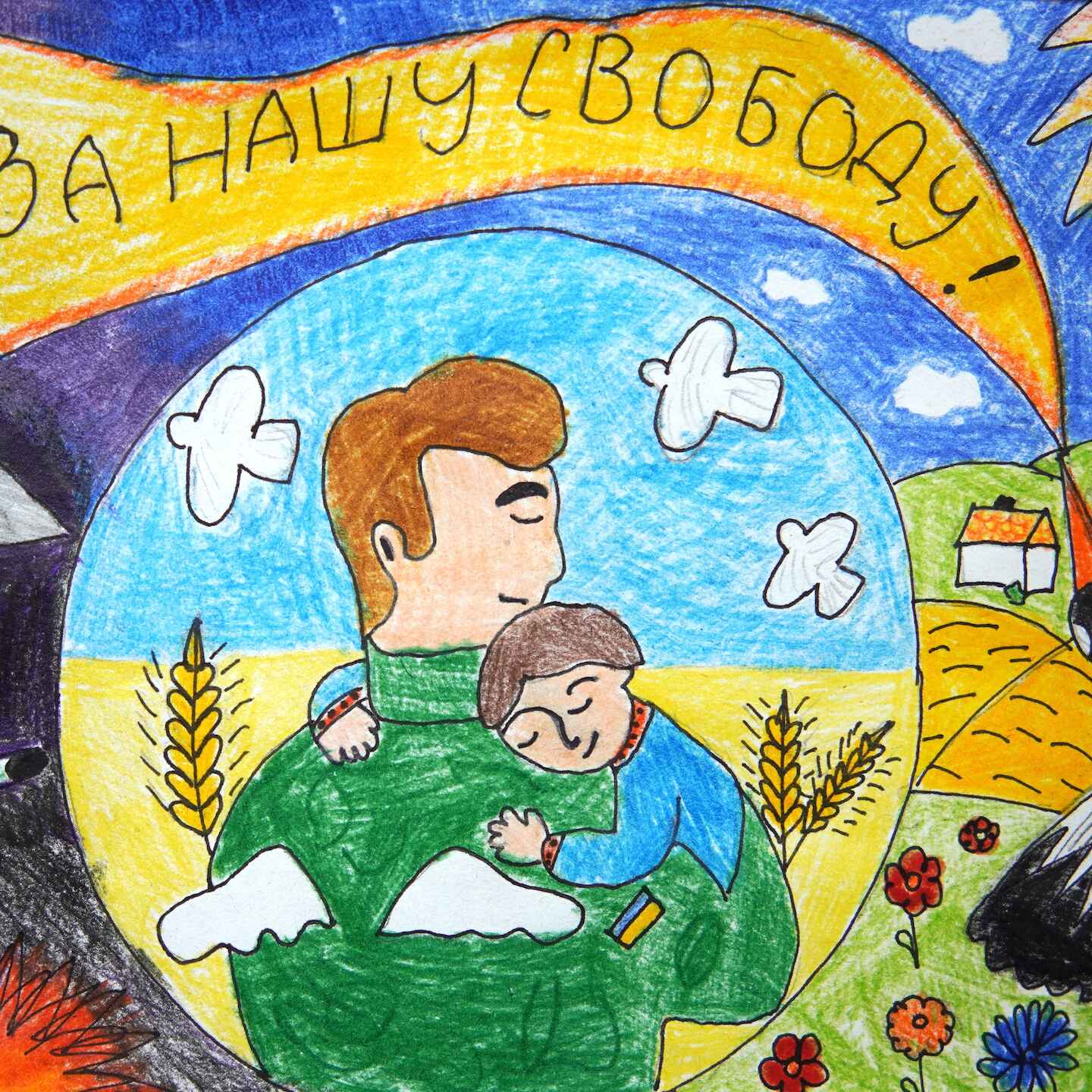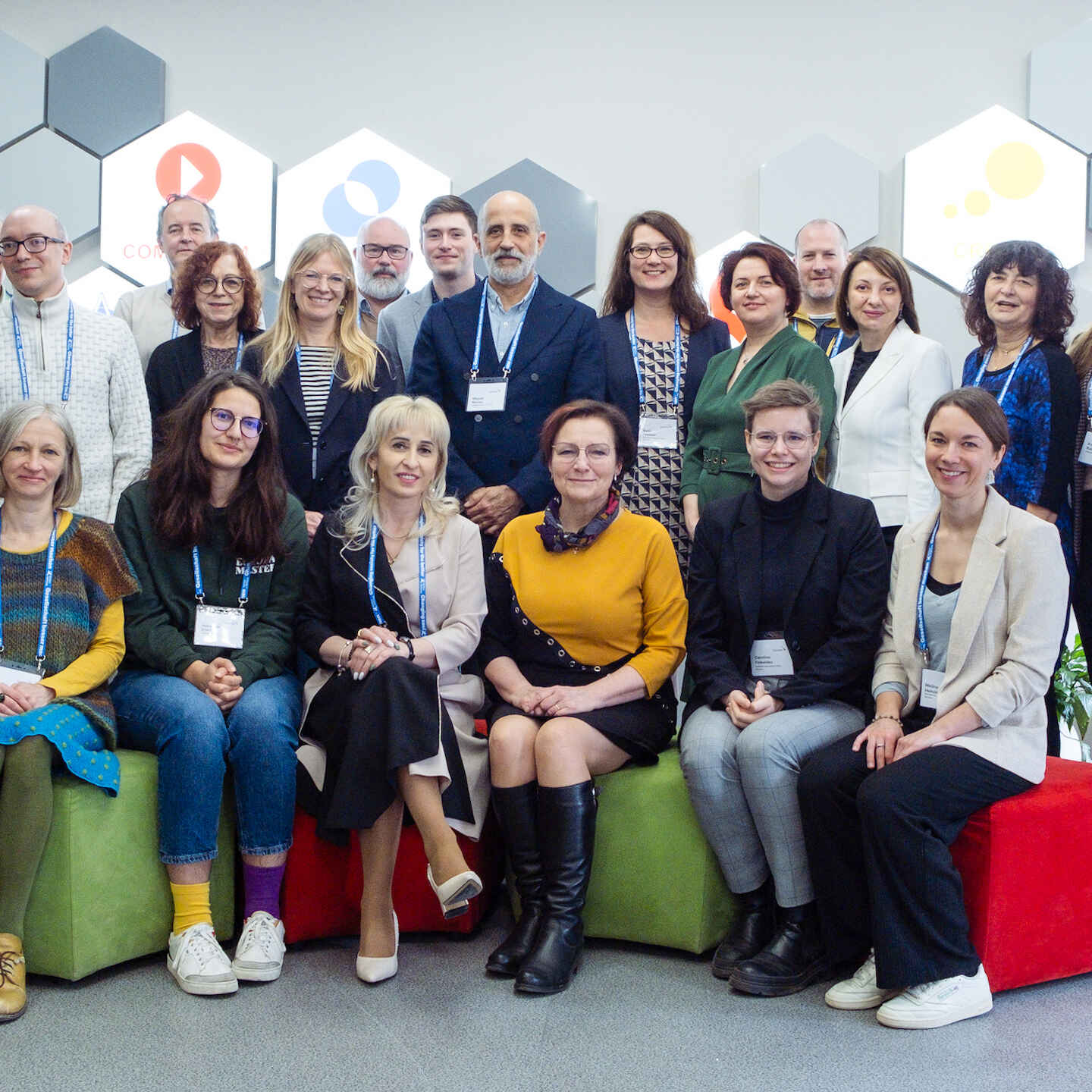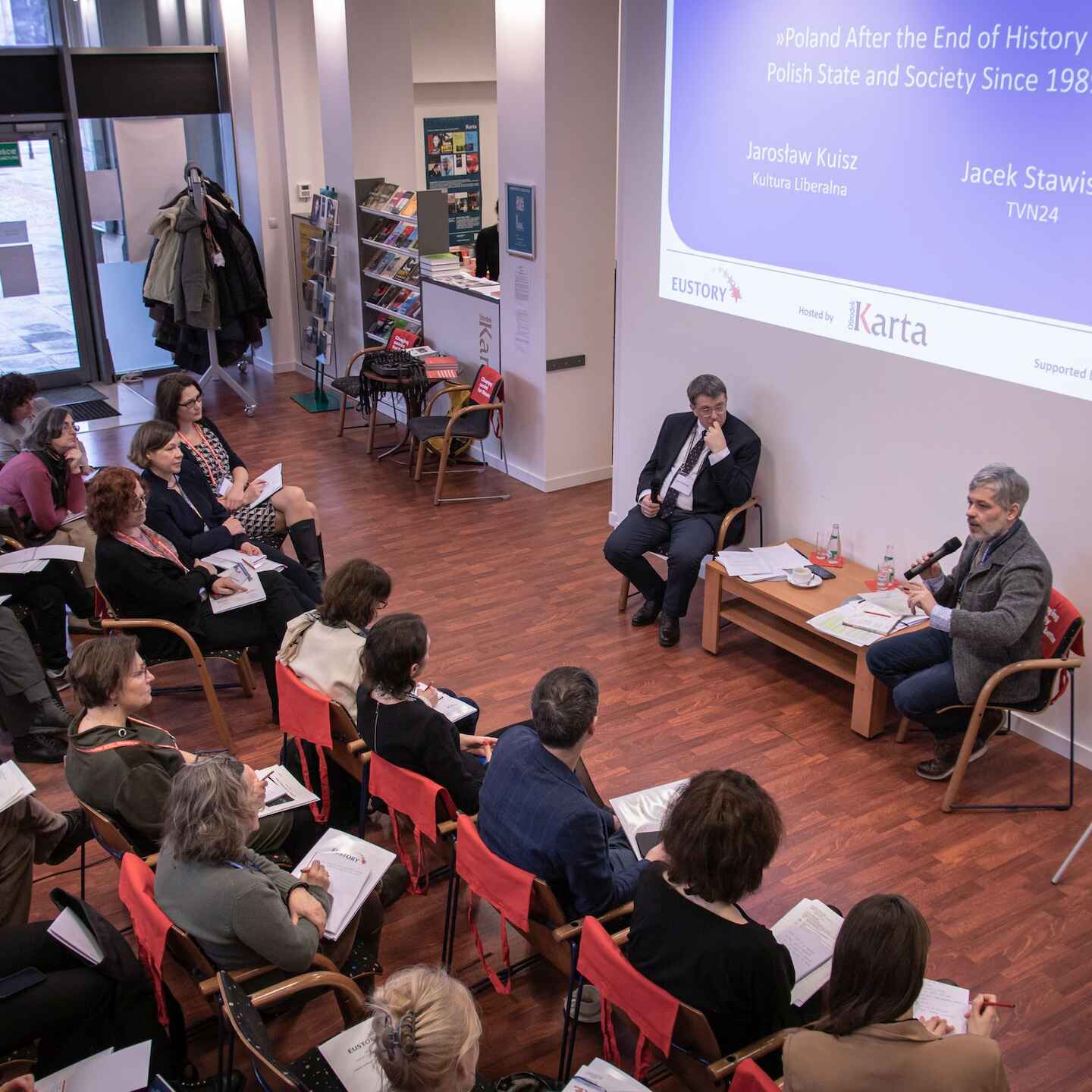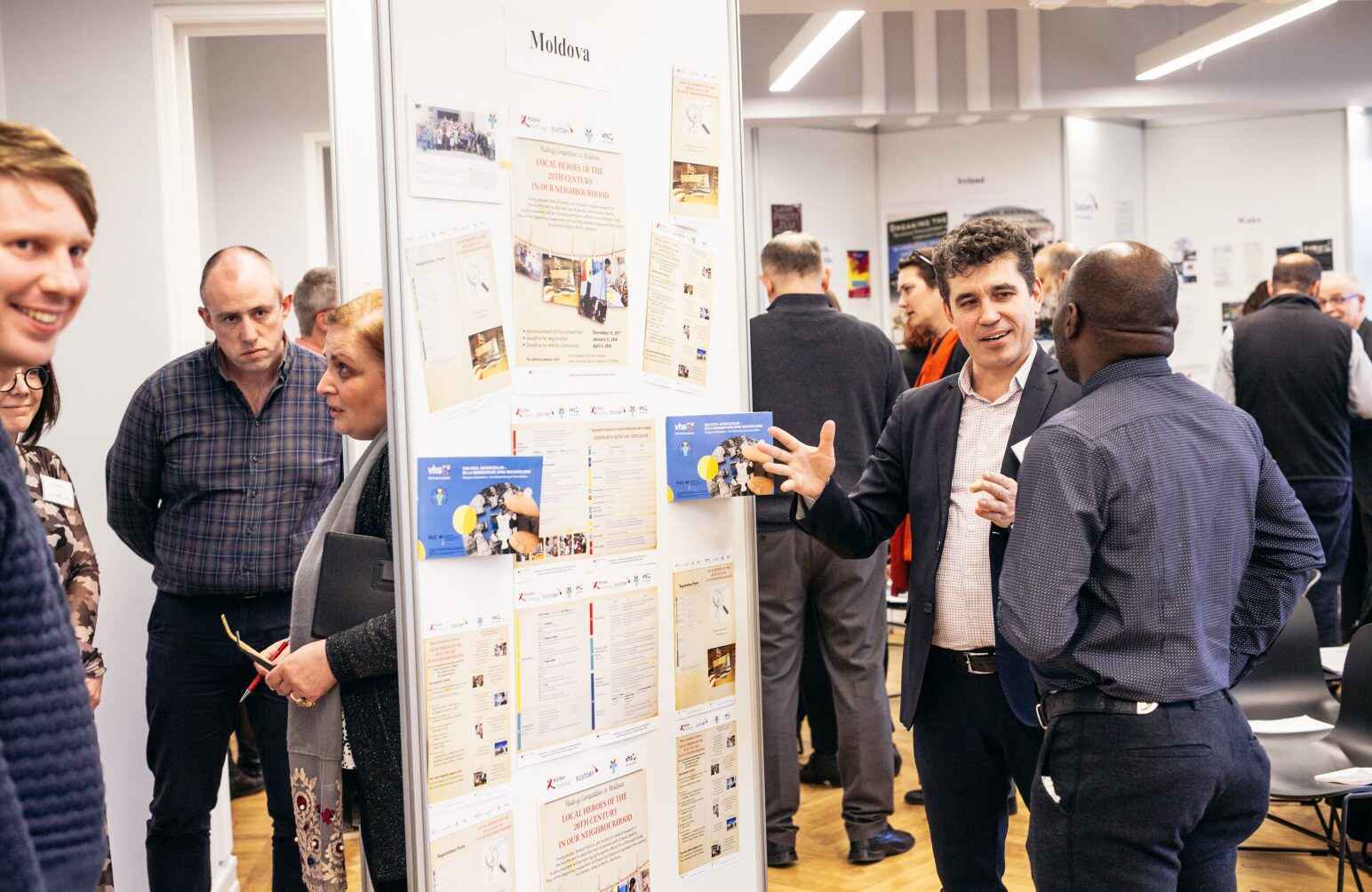
EUSTORY Network Meetings
Photo: Raul Mee
Strategy development, expert insight, exchange on current challenges and best practices: At the annual EUSTORY Network Meeting everything is about the competitions. With the regular, transnational exchange between the organisers of the national EUSTORY History Competitions, the network guarantees its constant further development – and prepares itself for the hardships of the future.
What part do EUSTORY Activities play in the commemoration culture of different countries? What real-world experiences do network members gain with their respective competitions? Where can cross-border synergies be developed, and what do current developments mean for the history competition yet to come? Moreover, national competition organisers also make use of the meetings to exchange information about new developments in school and extracurricular education. For example, they deliberate on challenges such as inclusion, digitalisation, or possible funding for civic history activities in Europe.
Since the host countries rotate, the meetings also offer intensive insights into the specifics of recollection and federal commemoration in different European places. On site, participants consider different approaches in dealing with difficult backgrounds such as the legacies of dictatorships, imperialism, or colonialism.
The meetings are organised and conducted by Körber-Stiftung in close contact with the respective host country. During the pandemic, the exchange took place in alternating digital formats.
“EUSTORY adds an international dimension to our individual competition projects. Taking part in the EUSTORY Network Meetings provides me with additional knowledge and inspiration for my work.”
Miguel Monteiro de Barros, EUSTORY Iberia, Portuguese Association of History Teachers
EUSTORY-Netzwerktreffen 2019
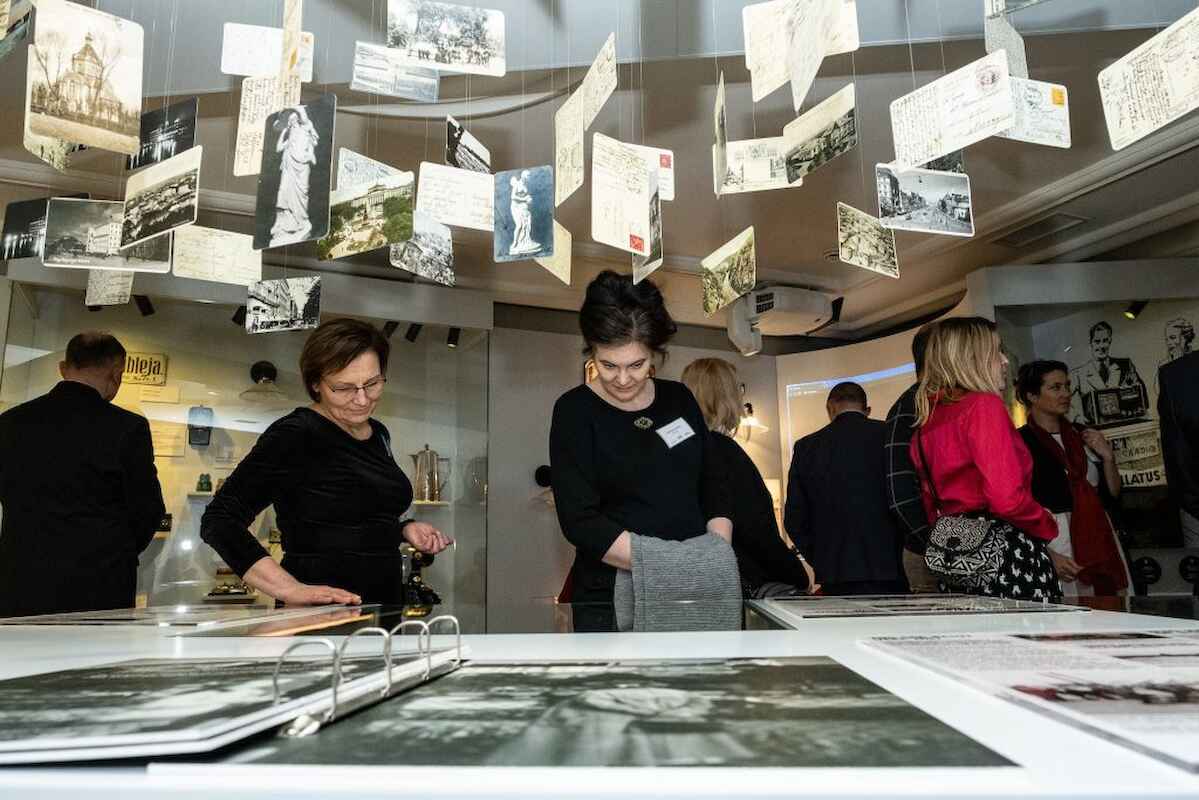
Photo: AronUrb 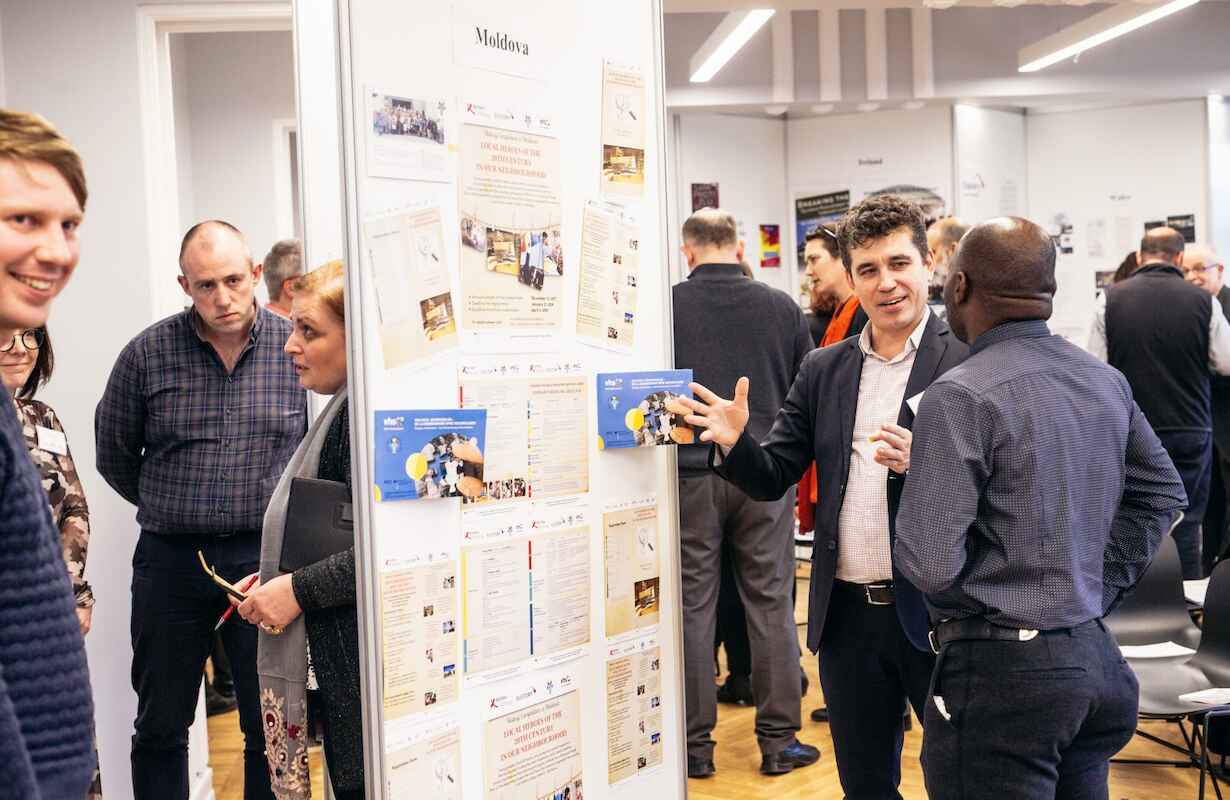
Photo: Raul Mee 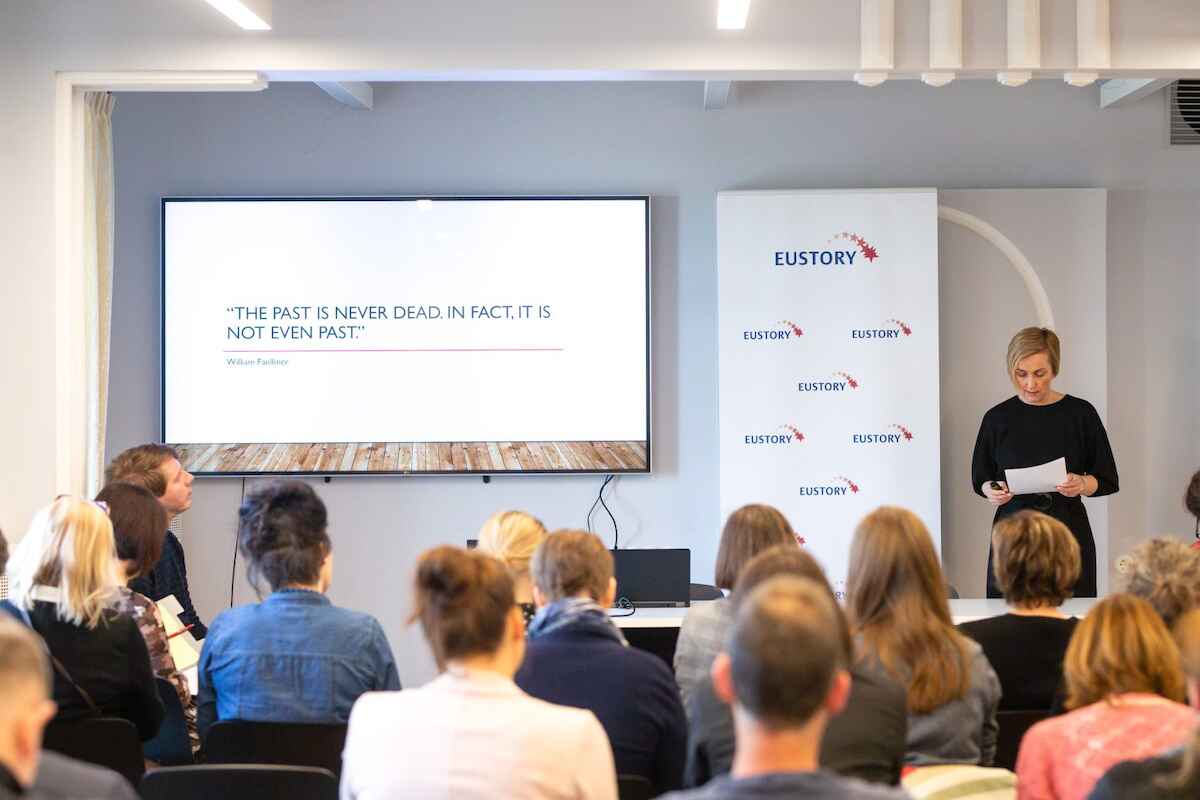
Photo: Raul Mee 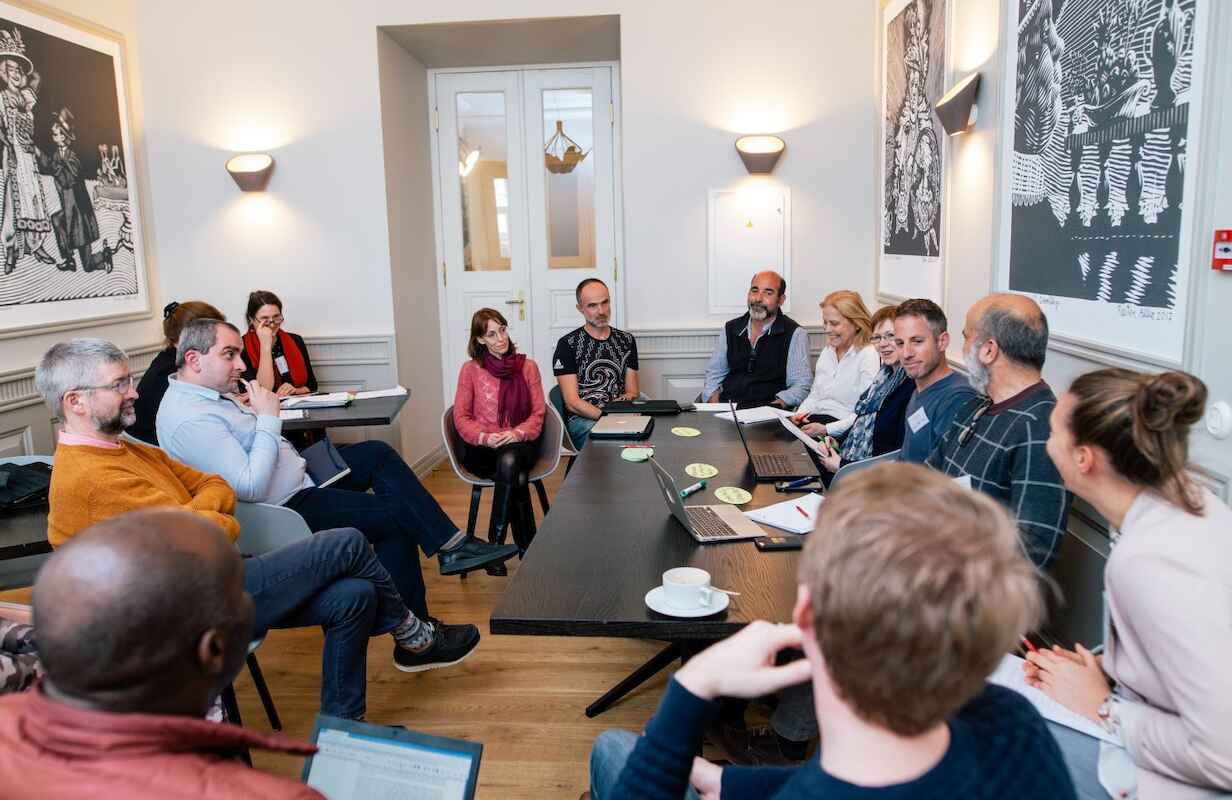
Photo: Raul Mee 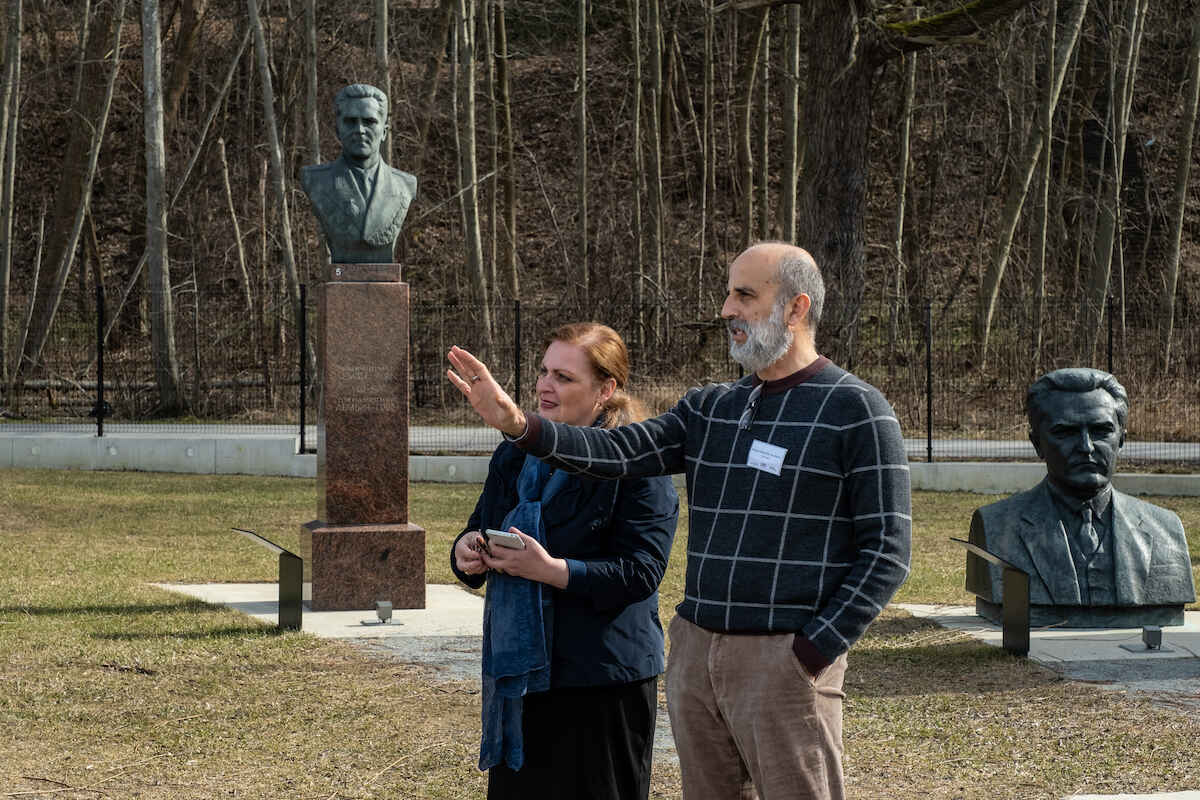
Photo: AronUrb 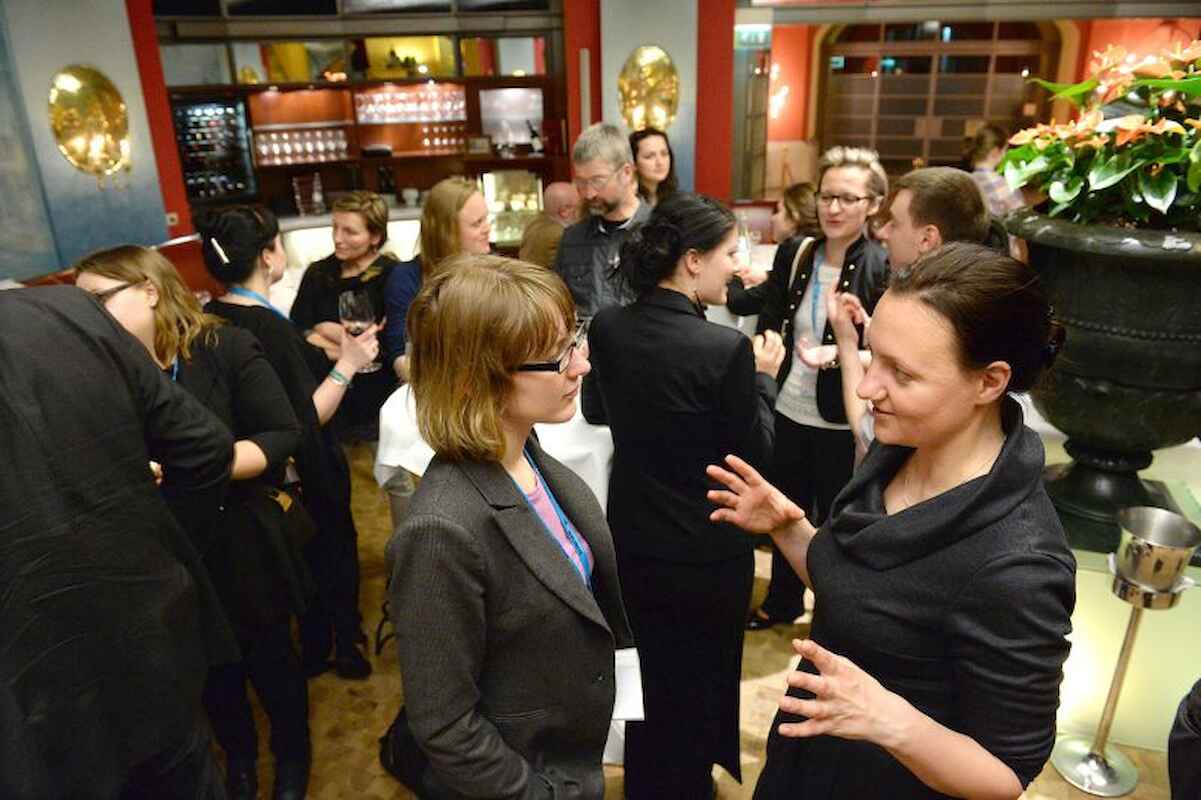
Photo: David Ausserhofer
Been around: The EUSTORY Network Meetings
2022: In digital format “24 February 2022: A Historic Turning Point for Europe?”
2021: First digital Network Meeting, main topic: (Post)Colonialism
2020: Málaga, Spain “Transitions in Europe and the Legacies of La Transición in Spain and Beyond”
2019: Tallinn, Estonia “Legacies of the 1989-91 Transformations in Europe”
2018: Turin, Italy “History 2.0. The Role of Archives in the Digital Age”
2017: Lisbon, Portugal “The Estado Novo Dictatorship”
2016: Moscow, Russia “Man in History – Russia in the 20th Century”
2015: Helsingør, Denmark, in cooperation with EUROCLIO
2014: Berlin, Germany “Remembering, Teaching and Commemorating European History in 2014 – New Approaches and Innovations for the EUSTORY Network”
2013: Riga, Latvia “1913/1914 – 2013/2014: European Neighbours in Times of War and Peace”
2012: Hamburg, Germany “History Education and Competitions – Working for Democracy”
2011: Hamburg, Germany, incl. Matinée with Helmut Schmidt und EUSTORY Alumni zur Zukunft Europas
2010: Ronda, Spain “2nd EUSTORY AISBL General Assembly”, main topic: Strategic Reorientation
2009: Lviv, Ukraine “Looking Ahead in Times of Change”
2008: Turin, Italy “Structural Changes to the Network: EUSTORY AISBL”
2007: Hamburg, Germany “Best Practice from National EUSTORY Competitions”
2006: Hamburg, Germany “EUSTORY Network – Where Do We Stand After Five Years and What are the New Challenges?”
2005: Warsaw, Poland “Commemorating 20th Century Migration in National Societies”
2004: Vienna, Austria “Achievements and Ambitions – EUSTORY Under Review”
2003: Budapest, Hungary “Haunting Memories? History in Europe After Authoritarianism”
2002: Berlin, Germany “Lives under Pressure – Individual Experiences from European History”
2001: Potsdam, Germany, official founding of the EUSTORY Network
